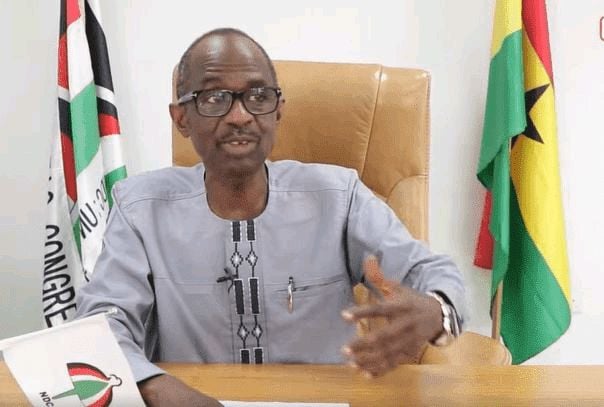The internal dynamics of Ghana’s National Democratic Congress (NDC) have been thrust into the spotlight following a “Thank You Tour” undertaken by the party’s National Chairman, Johnson Asiedu Nketiah. This seemingly innocuous gesture of gratitude, directed towards party executives, cadres, and grassroots members in the Eastern Region for their contribution to the NDC’s purported 2024 victory, has ignited a firestorm of controversy within the party’s ranks. Critics view the tour as premature, potentially self-serving, and a distraction from the pressing economic challenges facing the nation. This perceived misstep has amplified concerns about internal divisions and potential leadership struggles within the NDC, prompting calls for intervention from the party’s Council of Elders.
At the heart of the controversy lies the timing of Asiedu Nketiah’s tour. Coming shortly after former President John Dramani Mahama’s own nationwide “thank-you tour” in July 2025, the Chairman’s initiative has raised eyebrows and fueled speculation. Some party members question the necessity of a second tour so soon after the former President’s, suggesting that it may be a veiled attempt by Asiedu Nketiah to position himself for a presidential bid in 2028. This perception is further compounded by the argument that the party’s focus should be on addressing the nation’s economic concerns and fulfilling campaign promises, rather than engaging in what some perceive as internal political maneuvering.
Delanyo Agbe, a concerned NDC youth activist, has voiced his apprehension in an open letter addressed to the party’s Council of Elders. Agbe’s letter underscores the growing unease within the party, particularly among the youth, regarding the Chairman’s actions. He argues that the tour is not only ill-timed but also potentially divisive, undermining the party’s unity and collective progress. Agbe implores the Council of Elders to intervene and redirect the party’s focus towards its core mission of serving the Ghanaian people and consolidating its gains.
The open letter serves as a stark reminder of the delicate balance that political parties must maintain between internal dynamics and their public image. While internal competition and ambition are inherent aspects of any political organization, they can become detrimental when they overshadow the party’s broader goals and erode public trust. Agbe’s call for unity and discipline reflects a growing concern within the NDC that individual ambitions may be taking precedence over the collective good.
The controversy surrounding Asiedu Nketiah’s tour also highlights the potential for friction between the party leadership and the presidency, particularly if the former is perceived as overstepping its bounds or engaging in activities that could be construed as undermining the current administration. This delicate relationship requires careful management to ensure that the party remains cohesive and supportive of its elected officials.
The Council of Elders now finds itself at a critical juncture. Its response to Agbe’s letter and the broader concerns surrounding the Chairman’s tour will send a clear message about the party’s commitment to unity, discipline, and its core mission. A decisive and measured response can help to quell the growing discontent and refocus the party’s energies on addressing the challenges facing the nation. Failure to address these concerns effectively could further exacerbate internal divisions and damage the party’s image in the eyes of the public. The situation calls for wisdom, diplomacy, and a firm commitment to the principles that underpin the NDC’s identity.














